Gerard M. (Gerry) Anderson (MPP/MBA ’88), Chairman and Chief Executive Officer, DTE Energy
Diversifying and greening the energy portfolio of one of America’s largest electric utilities, with 2.1 million customers in southeast Michigan alone. The goal: reducing CO2 emissions by more than 30 percent by 2030.
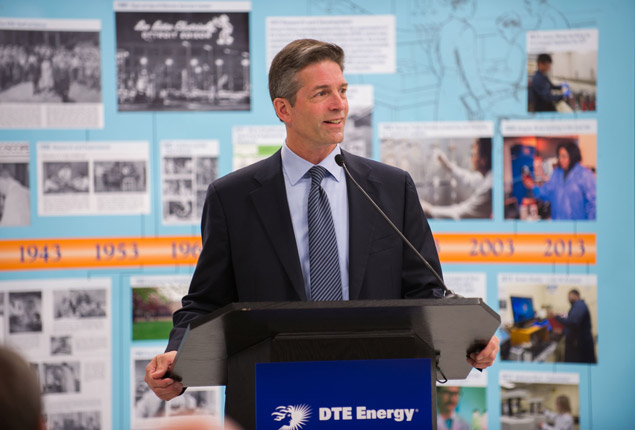
Adam Cooper (MPP ’10), Senior Manager, Edison Foundation Institute for Electric Innovation
Edited Innovations across the Grid, which showcases breakthrough technologies that are enhancing the efficiency, reliability, affordability, and sustainability of America’s rapidly evolving power grid.
Photo: UNHCR S. Rich 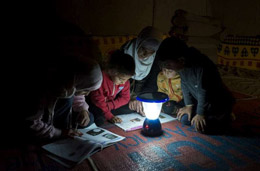
Steven Corliss (MPP/JD ’88), Director of the Division of Programme Support and Management, United Nations High Commission for Refugees
Launched the UN Refugee Agency’s Global Strategy for Safe Access to Fuel and Energy (SAFE). Reliable access to energy—for cooking, light, and power—is a basic need and necessary for economic development. However, for refugees, cooking a meal or having light at night, something that many people take for granted, is a daily struggle.
Michael Delaney (MPP ’07), Manager of Policy Strategy and Advocacy, DTE Energy
Works with policymakers who are helping to shape Michigan’s new energy standards. Mike Delaney’s goal: to balance affordability, reliability, and sustainability while avoiding an anticipated capacity shortfall as coal-fired power plants retire.
Antony DiGiovanni (AB ’95, MPP ’00), Deputy Budget Director, National Science Foundation
Helped launch the U.S. Department of Energy’s Advanced Research Projects Agency-Energy (ARPA-E). The goal: investing in high-risk, high-reward energy breakthroughs the private sector was bypassing.
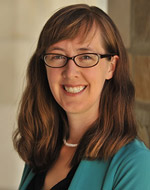
Catie Hausman, Assistant Professor of Public Policy, Ford School
Explores how America’s fracking revolution has affected the economic welfare of consumers and producers in "Welfare and distributional implications of shale gas," a recently released paper for the Brookings Institution. While supply surges have significantly lowered prices for business, industry, utilities, and consumers, Hausman finds negative impacts on producers who have suffered from the associated fall in natural gas prices. In addition to exploring the economic impacts of fracking, Hausman discusses the environmental costs, which remain exceedingly difficult for economists to quantify.
Kristy Hartman (MPP ’13), Senior Energy Policy Specialist, National Conference of State Legislatures
Regularly advises state legislators and legislative staff on policies, technologies, and best practices in oil and natural gas including hydraulic fracturing as well as nuclear energy, alternative fuels, and energy security.
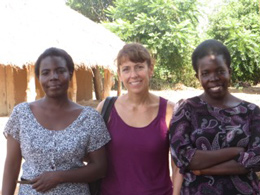
Sylvia Herzog (AB ’85, MPP/ MBA ’88), Chief Operating Officer, The Charcoal Project
Helps grow small businesses in the developing world that offer safe fuel alternatives for people who depend on wood and charcoal for their daily cooking and heating needs.
Chase Huntley (MPP/SNRE ’01), Senior Director of Government Relations for Energy, The Wilderness Society
Leads The Wilderness Society’s energy and climate change advocacy. The goal: guiding energy development to the appropriate places on public lands, and incorporating climate-smart practices to protect irreplaceable wildlands, biodiversity, and recreation.
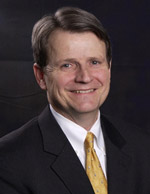
Rick Lancaster (MPP ’80), Vice President of Generation, Great River Energy
Oversees traditional and renewable electricity generation for a not-for-profit electric cooperative with power plants in North Dakota and Minnesota.
Sarah Mostafa (MPP ’15), 2014 Dow Sustainability Fellow
Analyzed the economic benefits of rooftop solar for the Michigan Public Service Commission. The goal: helping to promote the fair use of community solar in Michigan.
Rupal Patel (AB ’01, MPP ’04), Director of Sustainable Resources and Development, Renewable Resources Group
Develops utility-scale solar projects, including the 650 megawatt Antelope Valley Solar Ranch in Southern California, which will displace nearly 250,000 metric tons of CO2 annually, equivalent to the emissions of 60,000 vehicles, while serving the energy needs of 42,700 homes.
Jeff Jay (MPP/JD ‘16) and Rory Pulvino (MPP/JD ‘16), 2014 Dow Sustainability Fellows
Created a “how to” manual for ensuring the long-term social, economic, and environmental sustainability of distributed energy resources, like small wind and solar installations, in the developing world.
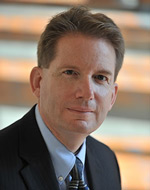
Barry Rabe, the J. Ira and Nicki Harris Family Professor of Public Policy and director of the Center for Local, State, and Urban Policy, Ford School
Exploring the longevity, durability, and outcome of carbon tax policies in a new book that analyzes roughly two-dozen case studies to learn what happens when governments put a price on carbon. Which policies outlast the next election cycle? Which are flexible enough to adjust to unexpected changes like recessions or plunges in demand? Which acquire broader political support over time? And which policies, when they manage to endure, produce a positive impact on CO2 emissions and the economy?
John Sarver (MPP ’75), President, Great Lakes Renewable Energy Association
Managed energy efficiency and renewable energy development initiatives for the Michigan energy office, shaping policy and sharing best practices, new technologies, and research findings.

Jomo Thorne (MPP/MBA ’08), Manager of Value-Based Reliability, Pacific Gas and Electric Company (PG&E)
Helped develop PG&E’s strategy on renewables to ensure compliance with California’s rigorous energy standards and reduce the company’s carbon footprint.
Karen Torrent (MPP ’88), Federal Legislative Director, Environmental Law and Policy Center
Preparing briefs for the Supreme Court review of Electric Power Supply Association v. Federal Energy Regulatory Commission. FERC seeks Supreme Court approval to reduce demand for energy, rather than increase supply, by paying consumers to conserve energy when it matters most.
Daniel J. Weiss (AB ’79, MPP ’80), Senior Vice President for Campaigns, League of Conservation Voters
Served as lead strategist for many successful Sierra Club and Center for American Progress energy and climate campaigns. He now oversees efforts to elect federal and state candidates who support climate action.
Email [email protected] to share energy and environmental policy stories for our expanded online roundup.
Below is a formatted version of this article from State & Hill, the magazine of the Ford School. View the entire Spring 2015 State & Hill here.
